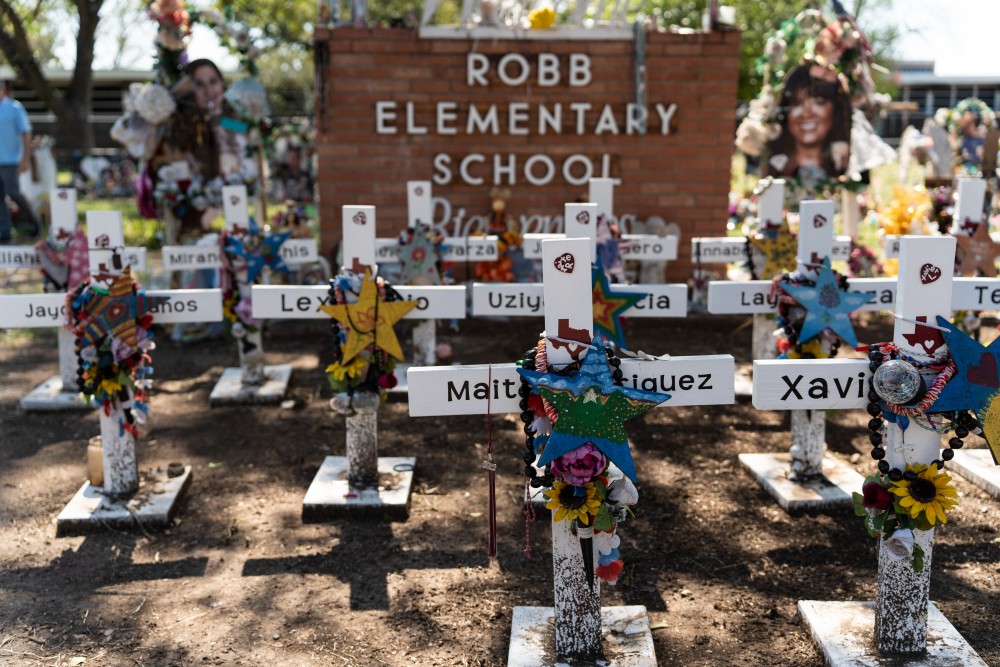
By Kate Scanlon
WASHINGTON (OSV News) — The U.S. surgeon general June 25 issued an advisory declaring gun violence a public health emergency, citing “the urgent threat firearm violence poses to the health and well-being of our country.”
In a video statement, Dr. Vivek Murthy said, “Firearm violence is a public health crisis. Our failure to address it is a moral crisis. To protect the health and well-being of Americans, especially our children, we must now act with the clarity, courage and urgency that this moment demands.”
Murthy said there is “broad agreement” that gun violence is a problem, citing a 2023 poll that found nearly 6 in 10 U.S. adults said they worry about a loved one being a victim of gun violence.
“The collective trauma and fear that Americans are experiencing is contributing to the mental health challenges that we are facing today,” he said.
Murthy’s advisory notes that gun violence is the leading case of death among U.S. children, surpassing motor vehicle accidents, poisoning and cancer, and that the rate of firearm-related suicide in the United States increased by 20% across the population in the decade from 2012-2022.
The advisory comes as mass killings in the U.S. are on the rise, as a 2023 analysis found.
Dr. Alex Garza, chief community health officer for SSM Health, a Catholic, not-for-profit health system and a member of the Catholic Health Association, told OSV News that Catholic health care should give special consideration to “the poor and vulnerable in our societies.”
“And because of that, we’re often called to to take care of victims of violence, which does disproportionately affect the poor and vulnerable,” Garza said.
Asked about Murthy’s announcement, Garza said, “I think what the surgeon general brings to the table really is almost like a bully pulpit, so being able to give voice, a larger voice to a significant issue” such as gun violence.
The Catholic Health Association in policy briefs has called for federal policies that “enable people to live healthier lives,” including “requiring background checks for the sale or transfer of all firearms, including gun shows and online merchants; banning the purchase and sale of assault-style weapons; temporarily prohibiting an individual from purchasing or possessing firearms when deemed by a judge to a pose a danger to self or others; and banning the purchase and sale of high-capacity ammunition magazines.”
“Gun violence continues to put hospital workers, patients and their families at risk — for children under 19 years of age, it is the leading cause of death. CHA also supports continued funding for the Centers for Disease Control to conduct public health research into firearm morbidity and mortality prevention,” the group said in one such policy brief.
Garza said it is often overlooked in gun policy debates that gun violence isn’t limited to violent person-on-person crime, it also is inclusive of many gun-related suicides.
“I think it’s important to also understand that it’s not just about person-on-person violence, it’s also that people that have mental issues or depression or other things, having access to a firearm can make it incredibly lethal,” he said.
The U.S. bishops have called on congressional lawmakers to pass new legislation to combat gun violence, stating their support for a 1994 federal assault weapons ban similar to one Congress allowed to expire in 2004. They have also supported limitations on civilian access to high-capacity ammunition magazines. Other gun regulation measures the bishops support include universal background checks for all gun purchases.
Earlier in June, Murthy called for health warning labels on social media — similar to those federally mandated for tobacco products — for adolescents.
